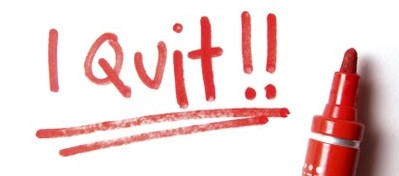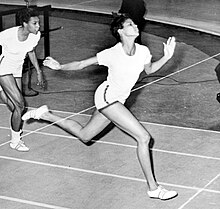by Charles Plant | Aug 3, 2012 | Leadership Development
 Perseverance is great but sometimes it can be confused with quitting and staying. What’s that, you say? Well quitting and staying is when you’re just going through the motions at work, not putting forth any great effort. For all intents and purposes you have quit, you just haven’t left your job.
Perseverance is great but sometimes it can be confused with quitting and staying. What’s that, you say? Well quitting and staying is when you’re just going through the motions at work, not putting forth any great effort. For all intents and purposes you have quit, you just haven’t left your job.
No, you wouldn’t do that would you? Heavens no, not you, but some of your colleagues may have quit and stayed. Here’s how to tell if someone else (you) have quit and stayed.
- Daytime Facebook posts seem just a bit more frequent than usual. After all, Facebook is the very visible part of a very large internet iceberg where time can be frittered away very profitably at work. (Reading this blog at work however is actually very valuable due to the pithy comments and excellent writing. Please tell 10 friends about it today so they can waste time too.)
- Your friend (ahem) has taken a new interest in playing hide and seek at the office. This is a game I used to play many years ago, leaving my desk very messy and coming back periodically to make a call and push the paper around a bit. While other people might be hiding in washrooms, empty meeting rooms and the cupboard, I was actually using the time very profitably learning the difference between types of Scotch.
- Going to lots and lots of meetings is another trick to quitting and staying. After all, if you’re at meetings, people think you are working. In fact, the more meetings you go to, the harder people think you are working. Paradoxically, meetings are a great place to nap with your eyes open, update LinkedIn and seem intelligent by asking penetrating questions. If you ask good questions, everyone will think you’re really bright when you actually have no answers. (Please note that I was very proud to use the word Paradoxically in this blog as I’ve been trying to find a use for it for some time now.)
- Excessive need to serve customers better, particularly out of town ones is another great give-away. After all, you think, these customers deserve much more attention. It’s totally not intentional if the timing of these meetings just happens to make it better for me to do a bit more “work at home” at the beginning and the end of the day. Much more efficient for everyone….really.
- “Working at Home” Do you remember how much “Homework” you used to do in high school? Yes and please tell me how effective that was. “Working at Home” means not having to go to meetings, play hide and seek, or excessively serve out of town clients better. It’s actually so much more efficient to pretend to work at home than pretending to work at the office.
Meanwhile, it’s Friday, the start of a long weekend. The weather is great. Stop all this incessant work. Go home and enjoy yourself.
by Charles Plant | Aug 1, 2012 | Leadership Development, Research

If you could choose to have one outstanding attribute, what would it be? Would you choose intelligence or creativity. Perhaps charisma, self-confidence or emotional intelligence. Maybe even physical attractiveness or extroversion? Come on, think about it, what one would you choose?
While certain traits may be important in certain occupations, research is showing that there is one trait or attribute that is important in all of them. And that trait, shared by leaders in all fields is grit.
True grit is perseverance and the passion passion for long-term goals.
Michael D. Matthews and Dennis R. Kelly in the Journal of Personality and Social Psychology have determined that:
- grit accounted for an average of 4% of the variance in success outcomes, including educational attainment among 2 samples of adults,
- grade point average among Ivy League undergraduates,
- retention in 2 classes of United States Military Academy, West Point, cadets, and
- ranking in the National Spelling Bee.
“Grit did not relate positively to IQ but was highly correlated with Big Five Conscientiousness. Grit nonetheless demonstrated incremental predictive validity of success measures over and beyond IQ and conscientiousness. Collectively, these findings suggest that the achievement of difficult goals entails not only talent but also the sustained and focused application of talent over time.”
So there you have it. It is better to persevere than to be good looking, creative, intelligent etc. So stop frittering away your time reading this blog and get down to work.
by Charles Plant | Jul 31, 2012 | Leaders, Leadership Development

Watching the Olympics today I was reminded of the story of a woman who showed incredible perseverance to get to the Olympics, let alone emerge a champion.
Wilma Rudolph was born prematurely, the 20th of 22 siblings. At the age of four she contracted infantile paralysis (caused by the polio virus). Until she was nine, Wilma wore a brace on her left leg and foot (which had become twisted as a result) and for another two years, wore an orthopaedic shoe. In addition, by the time she was twelve she had survived bouts of scarlet fever, whooping cough, chickenpox, and measles.
In 1952, at the age of twelve, she followed in her sister’s footsteps and began to play basketball. In the tenth grade her potential was recognized in track and field which she had taken up to remain active between basketball seasons.
At 16, she earned a berth on the U.S. Olympic track and field team and came home from the 1956 Melbourne Games with an Olympic bronze medal in the 4 x 100 relay.
At the Rome Olympic Games in 1960, at the age of 20 she won the 100 meter, the 200 meter, and got her third gold in the 4 x 100 relay with a world record. After these wins, she was acclaimed “the fastest woman in history”. In 8 years she went from overcoming the effects of paralysis to Olympic glory, and became for me a great example of perseverance in the face of adversity.
by Charles Plant | Jul 30, 2012 | Exercises, Leadership Development
“Effort only fully releases its reward after a person refuses to quit.” – Napoleon Hill
Perseverance works on your own tasks
Great books abound on the subject of persistence and perseverance. Seth Godin’s the Dip was an awakening for me as I am very slow to quit. Malcolm Gladwell’s Outliers countered my tendency to try to many things and never become a master at any one. Whatever your own demons, if you want to aspire to a position of leadership, you’ll need the perseverance to completely master your existing job and the persistence to keep seeking out new opportunities.
But its more than just persistence and perseverance. You need to know when to persevere and when enough is enough. If you persevere on a task that only involves you, that is great but when you persevere in trying to change other people’s behaviour, others will soon tire of you. To know when to quit, you need emotional intelligence.
But it doesn’t work when trying to change others behaviour
As a manager, your job is to get things done through other people. (Am I repeating myself often enough?) Persisting at changing a direct report’s behaviour when it isn’t bringing results is probably not going to work. In fact if you persevere long enough, you’ll do a great job pissing the other person off and frustrating yourself. So in terms of direct reports, perhaps persistence and perseverance is not always a good thing.
If you’ve tried multiple times to get a direct report to change his/her behaviour and it still isn’t working then it’s time to give up. It’s time to realize that you’ve either hired to wrong person, trained the person ineffectively or supervised them improperly. It has then become your problem, not theirs. Your options are to fire the person, change their job or change your approach. So in spite of everything you hear, there are lots of times when perseverance is the wrong approach.
 Try this at work:
Try this at work:
Think of someone at work whose behaviour you’ve been trying to change without success. Are things any better than when you started your change management attempts? If things are not any different and you’ve tried more than seven times then it is time for you to give up. Instead, try another approach, perhaps even a workaround.
by Charles Plant | Jul 27, 2012 | Emotional Intelligence, Leadership Development
 In an attempt to acknowledge the problems of work related stress, the Japanese have coined a new word. “Karoshi” is now the new term for “Death from Overwork” and is the word used to explain occupational sudden death, mostly due to heart attacks and stroke. The problem has become so important that statistics are kept for it nationally and have been since 1987.
In an attempt to acknowledge the problems of work related stress, the Japanese have coined a new word. “Karoshi” is now the new term for “Death from Overwork” and is the word used to explain occupational sudden death, mostly due to heart attacks and stroke. The problem has become so important that statistics are kept for it nationally and have been since 1987.
Japan’s post war economic rise resulted in a very strong work ethic, so strong that the average Japanese worker puts in approximately two hours a day of overtime. Until the 1980s no one paid much attention to the larger than usual number of men in their 40s and 50s who died of brain and heart diseases. However, when several high-ranking executives suddenly died without any previous sign of illness, the news media began picking up on this new phenomenon.
“According to Japanese Labor Ministry statistics there had been only twenty-one case of karoshi in 1987, twenty-nine cases in 1988 and thirty cases in 1989. But a liaison council of attorneys established in 1988 to monitor deaths from overwork estimated in 1990 that over 10,000 people were dying each year from karoshi.” (www.apmforum.com/columns/boye51.htm)
While the term Karoshi may only be used in Japan, several places in the United States have also recognized the phenomenon. In New York, Los Angeles and other municipalities, the relationship between job stress and heart attacks is so well acknowledged, that any police officer who suffers a coronary event on or off the job is assumed to have a work related injury and is compensated accordingly (including a heart attack sustained while fishing on vacation or gambling in Las Vegas).
The moral of the story: Stay Calm, this too shall pass and have a lovely weekend.
 Perseverance is great but sometimes it can be confused with quitting and staying. What’s that, you say? Well quitting and staying is when you’re just going through the motions at work, not putting forth any great effort. For all intents and purposes you have quit, you just haven’t left your job.
Perseverance is great but sometimes it can be confused with quitting and staying. What’s that, you say? Well quitting and staying is when you’re just going through the motions at work, not putting forth any great effort. For all intents and purposes you have quit, you just haven’t left your job.



